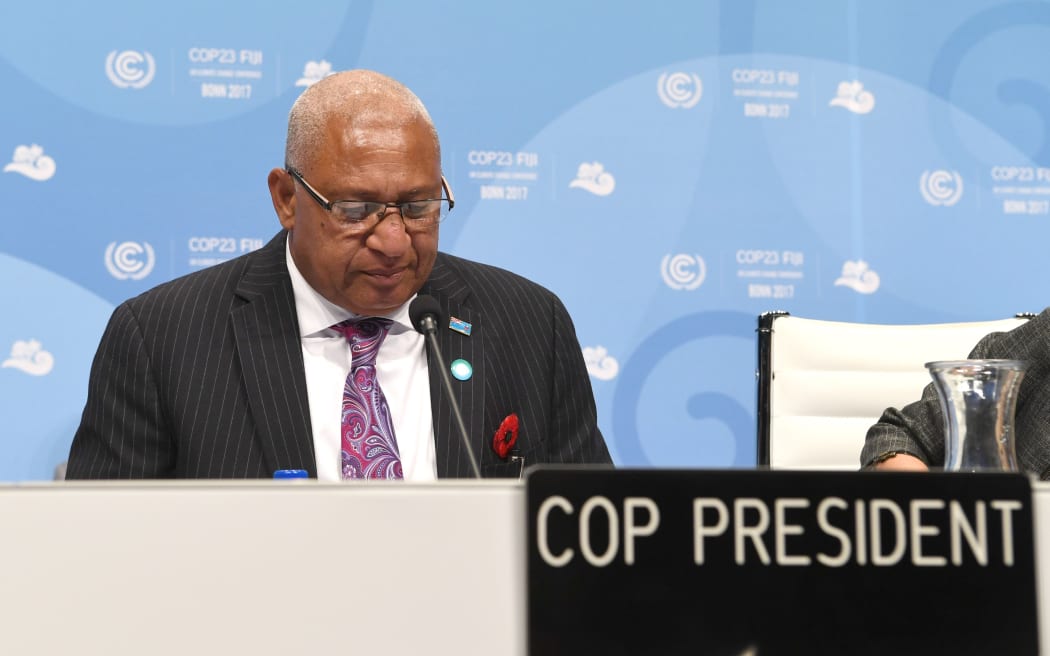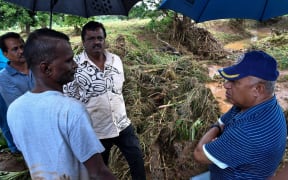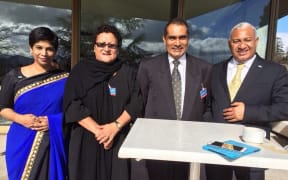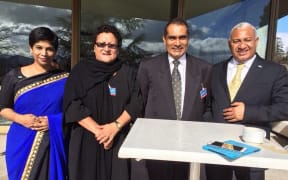Fiji's chief climate negotiator is defending the record of his country's presidency at the current global climate round, the COP23.

Frank Bainimarama, Prime Minister of Fiji and President of the COP23 attends the opening session of the COP23 United Nations Climate Change Conference on November 6, 2017 in Bonn, Germany. Photo: AFP PHOTO / PATRIK STOLLARZ
Luke Daunivalu said targets have been achieved or exceeded.
Mr Daunivalu said successes included the talanoa dialogue, getting oceans on to the climate change agenda, speeding up the processes around climate financing, and giving a stronger voice to women and indigenous peoples.
Fiji had previously said the Paris Agreement "rule book" of implementation guidelines would be in place ready for December's summit in Poland.
Mr Daunivalu said that consensus on the rule book will now be reached during the summit.
He said the accelerated ratification of the Paris Agreement created high expectations but concedes Fiji's targets for delivering the 'rule-book' have been stymied by bureaucracy.
"There's a very positive atmosphere but there's also a certain level of anxiety that we don't really have much time between now and COP24 which is when we need to adopt all the different aspects and elements of the implementation guidelines of the Paris Agreement."
Mr Daunivalu added that there is a continued strong push from the Small Island Developing States (SIDS), including those in the Pacific, to add what's known as "loss and damage" to the climate agenda.
Countries in tropical maritime regions are the first to experience the adverse effects of the world's changing climate.
The "loss and damage" experienced by SIDS countries exceeds their contributions to global emissions affecting climate change.
Bringing it to the climate agenda would accelerate ways to address issues caused by rapidly changing weather patterns.
Mr Daunivalu said consensus was difficult in a multi-lateral process where nations are negotiating their own priorities and don't see the urgency faced by Pacific countries.
"This has brought a sense of realism but also a sense of greater frustration that we're not moving fast enough," Luke Daunivalu said.
"You do have the mixed sense of both the urgency that is being voiced by countries that are particularly vulnerable, Small Island Developing States in particular, but also the fact that we cannot push ahead and leave certain elements unresolved or worse, un-agreed."




